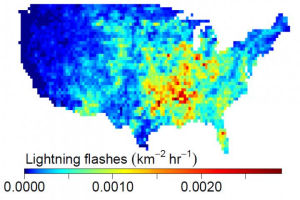
The finding last week from NASA that summertime Arctic sea ice was declining at such a rate that it may disappear by the end of the century has been strengthened by scientists from Germany who say that the rate of climate change is increasing.
NASA used satellite imagery to examine the extent of Arctic sea ice at the end of September, for a period going back 27 years. The researchers concluded that Arctic sea ice had declined by around 8.5 percent per decade over the period. For the ice to recover, sustained cooling is needed, but this has not been the case over the past 20 years, and it is not expected to be the case in the future if new research from the Max Planck Institute for Meteorology is correct.
Calculations by the German scientists suggest that over the next century the climate will change more quickly than it ever has in the recent history of the earth. The results come from the latest climate model calculations from the German High Performance Computing Centre for Climate and Earth System Research.
“The significant result of these future scenarios is the progressive raising of mean global temperatures and the movement of climate zones in connection with that,” says Dr. Erich Roeckner, the project leader of the new model. He added that, in Europe, summers will be drier and warmer, affecting agriculture, and winters will become warmer and wetter. Another consequence of the heated atmosphere will be extreme events like heavy precipitation with floods.
The climate models from the Max Planck Institute for Meteorology also include new findings about the effects of aerosols and the influence of the Earth’s carbon cycle. The results seem to confirm speculation over recent years that humans are having a large and unprecedented influence on the climate and are fuelling global warming.
The researchers say their climate model was verified by first simulating the climate of the last century and comparing the results with the real climate. “In this way, the theoretical models could be adapted very well to reality,” said Institute Director Jochem Marotzke. The results from Hamburg will be presented in the report from the Intergovernmental Panel on Climate Change.
But not everyone agrees. A group of researchers from Duke University say that man’s impact on climate change may be overstated, and that the solar cycle may have more of an effect than previously thought.
The Duke researchers say that their findings indicate that climate models of global warming need to be corrected for the effects of changes in solar activity. At least 10 to 30 percent of global warming measured during the past two decades may be due to increased solar output rather than factors such as increased heat-absorbing carbon dioxide gas released by various human activities, according to their findings inGeophysical Research Letters.
The Duke researchers, Nicola Scafetta and Bruce West, examined solar changes over a period of 22 years. They filtered out shorter range effects such as volcanic eruptions, which can temporarily cool the climate, and ocean current changes such as el Nino that affect global weather patterns. Such events can influence surface temperatures but are not related to global warming.
Scafetta’s and West’s paper concludes that “the sun may have minimally contributed about 10 to 30 percent of the 1980-2002 global surface warming.” They stressed that their finding does not discount that human-linked greenhouse gases contribute to global warming. “Those gases would still give a contribution, but not so strong as was thought,” Scafetta said. “For now, if our analysis is correct, I think it is important to correct the climate models so that they include reliable sensitivity to solar activity.”
Based on material from NASA, Max Planck Institute and Duke University


















Comments are closed.